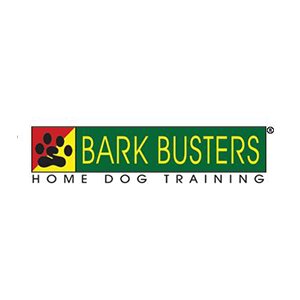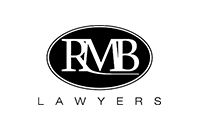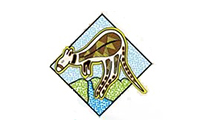Why your innovations are not safe
Why your innovations are not safe
May 6, 2016
When a business has worked hard to innovate and that innovation is copied by another person or competitor, there is a common misconception (and catch cry) that “There must be a law against it”. The best answer is that “It depends”.
And it does. It depends on:
- what your innovation is;
- whether it can be protected; and
- whether you have sought to protect it.
It is also helpful to work out precisely who you are seeking to protect the “theft” of your innovation from as this will inform where you will lay your defences.
WHAT IS YOUR INNOVATION
Some innovations are not legally capable of being protected. That is, there are no appropriate or relevant intellectual property rights or other right that may prevent a third party from copying your innovation. Innovations such as:
- business plans and models;
- financial plans and models; and
- ideas and concepts that have not been embodied in something tangible,
are difficult to protect. The only way you can keep a business or financial plan or model from being copied is to keep it confidential. However, with many such plans or models, the very act of using them in business puts them in the public domain. At this point, any person can replicate your plan or model for their own business without fear of being sued.
Similarly, initial concepts for businesses and products are often not protectable by IP rights, and must therefore be kept confidential until the time of launch, so as to give your business the maximum amount of time to establish itself in the marketplace before any “clones” arrive.
A case in point are web-based businesses, where the underlying concept or idea of the business/website is free to be copied as soon as the website is launched on the Internet. This does not mean that a copyist could simply copy verbatim your website as laws relating to copyright and trade marks can prevent direct copying; but you could not stop someone else copying the concept, ideas and business plan embodied in the website.
For example, if a business created a website to aggregate one-off property maintenance jobs for different tradespersons, linking property owners and managers with the appropriate tradespeople, as soon as the website is launched someone else could copy the concept of a website that links those with a job to those who can do the job.
However, the story is different if your concepts and/or ideas become embodied in a physical item or the process to make a physical item or effect. In this instance, confidentiality of the product or process becomes paramount until such time as you have had advice from an IP lawyer or patent attorney as to whether the product or process is patentable or protectable as a registered design, or both.
CAN IT BE PROTECTED?
The main intellectual property rights and the innovation they protect are listed below:
- Patents – protect novel (as in new) inventions that operate in the physical world (as opposed to the virtual/computer world). These are obtained by applying to the Patent Office by putting in an appropriately prepared application. Only a registered patent attorney can charge for drafting and filing a patent application.
- Registered Designs – these protect the novel (as in new) features of design of products. These are obtained by applying to the Designs Office by putting in an appropriately prepared application.
- Registered Trade Marks – these protect your brand. These are obtained by applying to the Trade Marks Office by putting in an appropriately prepared application. Unlike Patents and Design Registrations, they do not need to be kept confidential before they are applied for and in some cases proving extensive prior use of the trade mark may be a condition to obtaining registration.
- Copyright – this is a broad ranging right protecting the copying of everything from musical works, literary works (whether of note or not), artistic works (whether artistic or not) to software.
The nature of your innovation will determine what right is available to you. If you are developing software then it will be protected by copyright and there is no need to keep it confidential or register it with a government agency. If you are developing a new widget, then patents and/or registered designs will be relevant and so you must refrain from revealing your innovation before you seek patent and/or design protection or only show your invention to those who have agreed to keep it confidential.
If you want to protect your brand then you will need to seek its registration as a trade mark. However, your brand may include a picture, which is an artistic work protected by copyright. You will need to ensure that you own the copyright before you apply to register your brand as a trade mark.
As you can see, the IP rights available to you will depend on the innovation you are seeking to protect, and none, one or more may be available to the protection of your innovation, depending on what your innovation is.
HAVE YOU SOUGHT PROTECTION?
Often, if you are a start-up or a business trying something new and innovative, you will need the help of other businesses or people to build or design your innovation for you. You may need to discuss your innovation with people to determine whether it is viable before you have applied to register the IP in your innovation – especially if you are talking to investors who may provide much needed funds for filing IP rights.
If you are in this position, and before you discuss your ideas and concepts with anyone, you are strongly advised to put a confidentiality agreement in place that obliges the other party to maintain the confidentiality of your innovation and has them promise not to use your innovation for their own means. Preliminary business discussions in the absence of a confidentiality agreement is one way to lose your idea and concept.
Another common way in which early stage ideas are lost is through employees. Practically, you should restrict confidential and sensitive information to those trusted employees that need to know such information and clearly point out to your employees what you consider to be confidential or valuable information of your business that must not be disclosed. Legally, you should ensure that you have appropriate clauses in your employees’ employment contracts and the service contracts of the directors, company secretary and other office holders of the business.
Innovation can also be lost to your customers. In this regard, appropriate provisions in your customer agreements may need to be added to prevent your customers making unauthorised use of your innovation.
As with most things, the earlier you develop a strategy around the protection of your innovation, the better off your business will be if and when it has to defined its ownership, right to use and right to prevent others from using its innovation. Knowing what can be protected, and what cannot, will also help you spend your time, effort and money where it will be most effective.
Contact us today to get YOUR INTELLECTUAL PROPERTY STRATEGY
- Local and National – 0499 222 028
- International – + 61 499 222 028
- info@marshallip.com.au

Not sure where to start?
We're here to make it easy. Call or email us today.
















